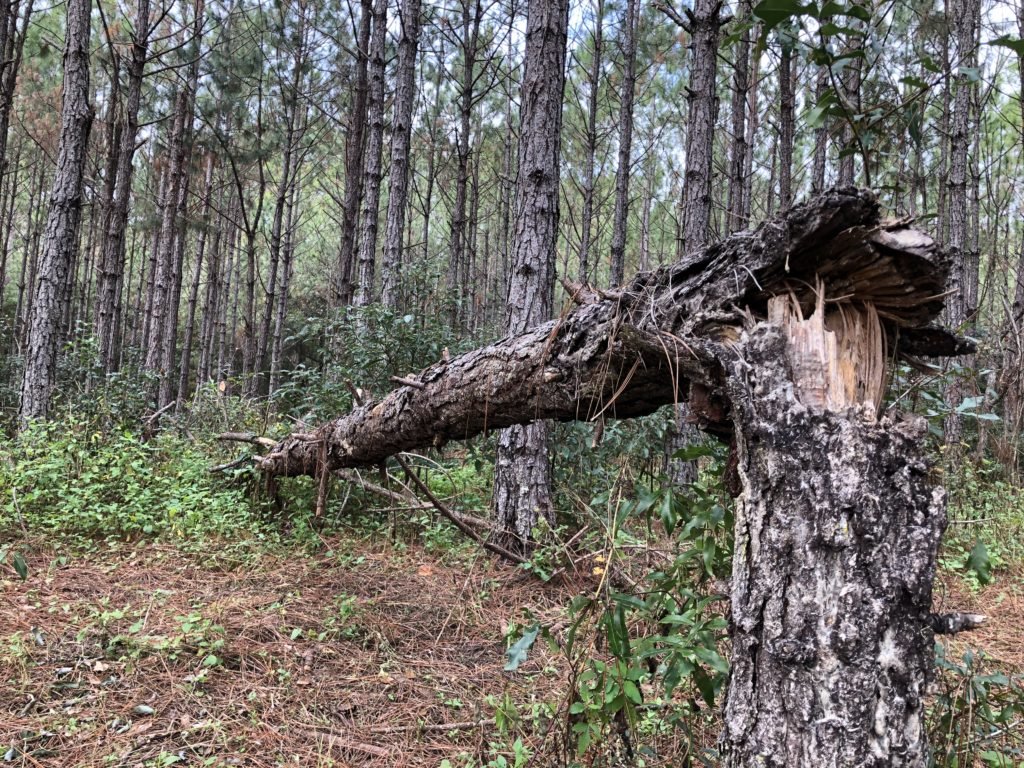
Above: another pic from the sticks, hope I don’t get ticks. I’m hiding out in this remote location for a couple more days.
I’m a fan of email newsletters — I subscribe to way too many — and one of my favorites is Cherie Hu’s Water & Music. Even outside of the newsletter Hu is one of my favorite music industry writers/pundits, and she seems to reserve her most thought-provoking opinions for the newsletter. And 2018’s final edition of Water & Music, titled ‘The Music Industry’s Inconvenient Truths,’ is a corker.
The premise revolves around answers to the question, “What is one truth about the music industry that very few people agree with you on?” I can’t say I strongly disagree with any of the responses Hu received, and this one bolsters the direction of my consulting work. But it’s Hu’s two answers to the question that elicit the most thought — this newsletter’s been reeling in my head since I read it a few days ago.
Hu’s first answer has familiarity as she’s dropping some Seth Godin knowledge and I just finished his latest book, This Is Marketing. The concept of the ‘smallest viable audience’ is emphasized, which states that an artist should only seek to please his die-hard fans. Musicianship and ‘honing the craft’ remain important, but not at the expense of serving the needs of those who support you. Says Hu:
Let’s put it this way: as long as music can be materialized as an item or activity whose purchase generates revenue for somebody, music is a product. People who buy or engage with a musical product are referred to by the industry as “fans,” so “fan” is just another word for “customer.” Customers buy the products that best satisfy their own needs and desires. So, like in any other industry, the best music products most effectively address customers’ needs and satisfy clearly-defined gaps in the market that other products haven’t filled.
In This Is Marketing, Godin argues that we are all marketers as individuals seeking to make a change in others. For the recording artist, that change is as simple (or complex) as convincing a listener to check out her album rather than someone else’s. Godin then challenges us to think of ourselves as something more than marketers — also as teachers, delivering value and reward to our customers/fans. With a teacher mindset, we’re encouraged to produce meaningful content for those who are paying the most attention.
I could go on and on about this but I’ll save it for a future post. I’m cutting myself short as I can’t wait to get to Hu’s next proclamation: “The word ‘creator’ does more harm than good:”
I understand that the word “creator” might be the simplest, most easily accessible term for addressing all possible users releasing content on a given platform. And don’t get me wrong: democratizing creativity is undeniably a force for good, and the last thing the world should do is give fewer people access to tools for making art and expressing themselves. But who owns and profits from that creativity is an entirely separate debate, in danger of being obfuscated by the widespread adoption and promotion of “creator” as a job title.
It may seem like semantics, but the way we adopt and use language rewires our thinking (hello, George). Hu’s point— which I never considered — is that the more we refer to ourselves as ‘creators,’ the easier it is to submit to the notion that our creations are in fealty to others. Notice how the services almost all use ‘creator’ — a sampling of examples Hu points out include YouTube Creators, Facebook for Creators, Spotify’s “Creator Marketing.’ So when a platform sneakily claims ownership of our work — as Spotify did with its #PraiseV campaign (see Hu’s newsletter) — we’re desensitized against protest. Hu again:
Throughout history, the democratization of creativity has coincided with a dilution of clarity around ownership […] [and] the mechanisms by which other companies can claim IP ownership in a world of democratized creation are becoming much swifter than reading through tens of pages of a record contract.
I feel like the tech platforms — Spotify, Apple, Amazon, et al. — would like us to start thinking of music as software. That is, we’ve ‘created’ something that’s inseparable from their technologies. Just as Omnifocus, my to-do app of choice, won’t run and can’t exist without my iMac, a song can’t exist without Spotify. Then we start thinking of our music as dependent on the platform when, of course, it’s the other way around.
That’s one thing I love about music publishing. Its framework forces us to think of compositions as separate from the recordings and undetachable from the songwriter. A song isn’t a creation, per se, but an idea tied to an individual (or individuals, if there are co-writers). The tech platforms have had their problems with music publishing, showing that the intimacy of composition may help protect against music becoming software. But, as Cherie Hu points out, the real battle may be fought through language and how a shift in simple phrasing affects the ownership mindset of future songwriters. Let’s hold on to our ideas and understand that songs are breathing things that exist on their own, platform be damned. Don’t let your music become software.
P.S. — I realize this last bit may seem in contradiction to the first, where it appears I’m referring to songs as product. But it’s not in opposition at all if you understand the type of marketing we’re doing as artists. Godin’s This Is Marketing will help you understand and I recommend it.
P.P.S.— There’s no disrespect intended to software and software makers. But I feel programmers have a better understanding of their IP rights in the milieu of platform-dependence than songwriters and artists do.